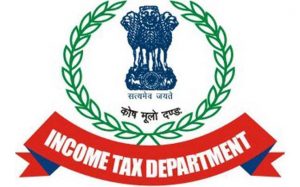Signing of 62 Advance Pricing Agreements by CBDT in FY 2021-22

The Central Board of Direct Taxes (CBDT) has entered into 62 Advance Pricing Agreements (APA) in FY 2021-22 with Indian taxpayers. This includes 13 Bilateral APAs (consequent to Mutual Agreement between India and its treaty partners) and 49 Unilateral APAs. With this, the total number of APAs since inception of the APA program has gone up to 421.
Despite severe economic and social disruption caused by the CoVID-19 pandemic in first part of the financial year, the number of APAs signed compares very well with the APAs signed in the preceding two years (31 APAs in FY 2020-21 and 57 APAs in FY 2019-20).
The APA Scheme endeavours to provide certainty to taxpayers in the domain of transfer pricing by specifying the methods of pricing and determining the arm’s length price of international transactions in advance for the maximum of five future years. Further, the taxpayer has the option to rollback the APA for four preceding years, as a result of which, total nine years of tax certainty is provided.
The progress of the APA scheme strengthens the Government’s resolve of fostering a non-adversarial tax regime and increasing the ease of doing business in India. CBDT appreciates the cooperative and transparent attitude of taxpayers in this regard.
To read the Press Release CLICK HERE.
Some basic FAQ on Advance pricing Agreement:
Q. What is an Advance Pricing Agreement (APA)?
An APA is an agreement between a tax payer and tax authority determining the transfer pricing methodology for pricing the tax payer’s international transactions for future years. The methodology is to be applied for a certain period of time based on the fulfillment of certain terms and conditions (called critical assumptions).
Q. What are the different types of APAs?
An APA can be unilateral, bilateral, or multilateral.
• Unilateral APA: an APA that involves only the tax payer and the tax authority of the country where the tax payer is located.
• Bilateral APA (BAPA): an APA that involves the tax payer, associated enterprise (AE) of the tax payer in the foreign country, tax authority of the country where the tax payer is located, and the foreign tax authority.
• Multilateral APA (MAPA): an APA that involves the tax payer, two or more AEs of the tax payer in different foreign countries, tax authority of the country where the tax payer is located, and the tax authorities of AEs.
Q. What are the key benefits of APA?
An APA provides the following benefits-
• Certainty with respect to tax outcome of the tax payer’s international transactions, by agreeing in advance the arm’s length pricing or pricing methodology (ies) to be applied to the tax payer’s international transactions covered by the APA;
• Removal of an audit threat (minimize rigours of audit), and deliverance of a particular tax outcome based on the terms of the agreement;
• Substantial reduction of compliance costs over the term of the APA; and
• For tax authorities, an APA reduces cost of administration and also frees scarce resources. Consequently, APAs provide a win-win situation for all the stakeholders involved.
You can book phone consultation/ assistance online with expert as mentioned below:
To book ITR filing with experts CLICK ME.
To book phone consultation with experts for any Income tax related matters CLICK ME.
To book consultation for Faceless Assessment with experts CLICK ME.
To book phone consultation with experts for GST related matters CLICK ME.
To book general phone consultation with expert CLICK ME.